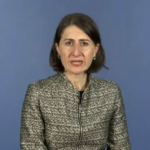Prosecuted for not sending kids to school

We all love our kids and want the best for them, and not everyone believes that the school system is the most advantageous way to go – after all, many successful people have had little or no formal schooling.
But in NSW, it is against the law not to provide your kids with approved schooling, and parents can find themselves in court facing heavy fines for not complying.
What does the NSW law say?
Under section 22 of the Education Act in NSW, parents must either enrol their child in a school (a public school or a registered non-government school) or register them for home schooling.
All children must be enrolled at school until they have finished Year 10 and turned 17.
Students who have completed year 10 but are not yet 17 must either be in school (or home schooled), in approved education or training (such as TAFE), in full-time, paid employment, or a combination of work or training.
Failing to enrol your child or send them to school are offences that can be prosecuted by the Department of Education.
If a child is not receiving schooling, a compulsory schooling order can be made by a Magistrate in court.
Compulsory schooling orders
Compulsory schooling orders are not made in the Local Court, but the Children’s Court, where the proceedings are less formal.
The nature of the particular order will depend on the circumstances of the case. For example, parents may be required to attend a conference, engage with staff from the Department of Education, attend drug or alcohol counselling and/or have their child medically assessed.
The order may also allow the Director-General to enrol the child in a government school if there is non-compliance.
If these measures fail to solve the problem, the matter may progress to a more serious form of prosecution.
What are the penalties?
The Director-General of the Department of Education and Communities is responsible for prosecuting parents who do not school their children.
Failing to enrol a child comes with maximum penalty is $2,750 for a first offence, and rises to $5,500 for a subsequent offence.
The maximum penalty for breaching a compulsory schooling order is $11,000.
Children over the age of 15 can face a maximum fine of $110 if they don’t comply with the order, unless they have a reasonable excuse.
The Magistrate has discretion to impose a community service order instead of a fine.
Legal Aid is available in limited circumstances for parents who are being prosecuted under the Education Act, provided that they pass a means test and also a merits test.
Are there any defences?
Section 23 of the Education Act contains defences to the charges, which include if a child has been suspended, or expelled, and is unable to find a place at another school.
Other defences include serious medical conditions, or where the child is living independently from their parents, or if he or she is disobedient despite the parents’ best efforts.
It is also a defence if the child had not been absent for more than three days in the preceding three months of the school year, or if he or she is enrolled and attended a school in another state, territory or country.
Should parents or children be prosecuted for not attending school?
Education is a basic human right – and for those aged between 6 and 17, it is generally mandatory.
Legislation has been introduced in the UK which says that even taking kids out of school for a few days can see parents hit with a fine.
One couple voiced their disbelief after they were issued a £120 fine for pulling their child out of school for six days to attend a memorial service for his grandfather in the US.
The pair now face a £1,000 fine for refusing to pay the initial £120.
Laws in Australia are not as strict – and Australian children miss more school than those in most other developed countries.
And it’s not just children from lower-income families – kids from private schools are frequently withdrawn from class for family vacations, much to the disappointment of the Department of Education.
The average NSW public school student misses nearly three weeks of school per year, but are prosecutions and fines the way to go in order to ensure parents comply and send their kids to school?
Receive all of our articles weekly
Author






